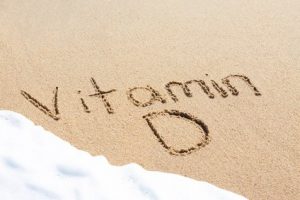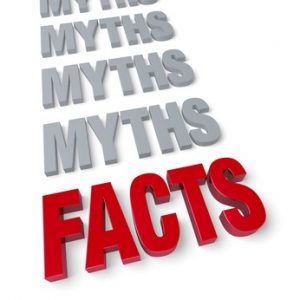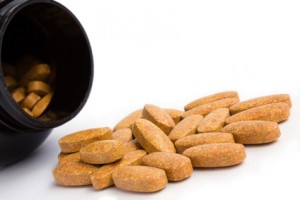How Should You Prepare For This Winter?
 Some health experts are making dire predictions for this fall when COVID-19 overlaps with our annual flu season. People are worried.
Some health experts are making dire predictions for this fall when COVID-19 overlaps with our annual flu season. People are worried.
When people are worried, hucksters smell a quick buck and start coming out of the woodworks. They are touting all sorts of miracle pills and potions that will keep us safe this winter. The FDA is doing its best to shut them down, but it’s like the “Whack A Mole” game you may remember from the county fair. As soon as the FDA shuts one down, another pops up.
In the meantime, you are left trying to sort through the claims. I could write a whole book on the truth (and lies) about the claims you are seeing on the internet. But this week I will focus on vitamin D. I will give you unbiased answers to three questions.
1) What is the truth about vitamin D and respiratory disease?
2) Will vitamin D help protect you against COVID-19?
3) How should you prepare for this winter?
I am basing today’s “Health Tip” on a recently published study (H Brenner et al, Nutrients 2020, 12, 2488) looking at the effect of vitamin D status on deaths from respiratory disease in older German adults.
How Was The Study Done?
 The data from this study were taken from an ongoing study in Germany looking at the effect of diet and lifestyle on health outcomes in older adults. In this case, 9548 adults, ages 50-75, from the region of Saarland in Germany were enrolled in the study between 2000 and 2002 and followed for an average of 15 years.
The data from this study were taken from an ongoing study in Germany looking at the effect of diet and lifestyle on health outcomes in older adults. In this case, 9548 adults, ages 50-75, from the region of Saarland in Germany were enrolled in the study between 2000 and 2002 and followed for an average of 15 years.
Blood samples were drawn at the time of enrollment and 25-hydroxyvitamin D levels were determined as a measure of vitamin D status. Deaths and cause of deaths over the 15 year period were obtain from German health records.
The basic characteristics of the study population were:
- The gender breakdown was 43.8% men, 52.6% female.
- The average age was 62.1 years.
- Almost all participants were Caucasians of German or French descent.
- 8% were vitamin D insufficient (25-hydroxyvitamin D of 30-<50 nmol/L)
- 1% were vitamin D deficient (25-hydroxyvitamin D of <30 nmol/L)
Note: Almost 60% of this study group had an inadequate vitamin D status. The comparable figures for the US population are 42% with inadequate vitamin D status (34% vitamin D insufficient and 8% vitamin D deficient).
The reasons for this are likely two-fold:
- Saarland is at the latitude of Newfoundland, Canada, so sun exposure is less than for most Americans.
- Germans are less likely to consume supplements than Americans.
However, the fact that 60% of this study group has inadequate vitamin D status makes it a particularly good group to look at the effect of vitamin D status on health outcomes.
The Truth About Vitamin D And Respiratory Diseases
- Vitamin D insufficiency (25-hydroxyvitamin D of 30-<50 nmol/L) increased the risk of dying from respiratory disease by 1.9-fold for men and 2.1-fold for women.
- Vitamin D deficiency (25-hydroxyvitamin D of <30 nmol/L) increased the risk of dying from respiratory disease by 2.3-fold for men and 3.0-fold for women.
The authors pointed out that this was consistent with a recent meta-analysis of randomized clinical trials showing that supplementation with RDA levels of vitamin D reduced the risk of acute respiratory tract infections by 70% in people who were vitamin D deficient.
The authors concluded:
“Vitamin D insufficiency and deficiency are common and account for a large proportion of respiratory disease mortality in older adults…Our results, along with evidence from meta-analyses from RCTs [Randomized Placebo-Controlled Clinical Trials] regarding results of vitamin D3 supplementation on various outcomes, suggest that vitamin D3 supplementation could contribute to lowering mortality from respiratory and other diseases during and beyond the COVID-19 pandemic, particularly among women.”
How Should You Prepare For This Winter?
 Now it is time to answer the three questions I posed at the beginning of this article:
Now it is time to answer the three questions I posed at the beginning of this article:
1) What is the truth about vitamin D and respiratory disease?
There have been many studies suggesting that inadequate vitamin D status increases the risk of “catching” respiratory diseases such as the seasonal flu. Some of those studies showed that supplementation with vitamin D3 reduced the risk of catching respiratory diseases. However, most of those were small studies.
This study and the meta-analysis the authors referred to were much larger, better designed studies. Other large, well designed studies are needed. But, taken together, these two studies strongly support the hypothesis that inadequate vitamin D status significantly increases the risk of developing and dying from respiratory diseases.
However, we do need to put this into perspective.
- Supplementation with vitamin D primarily protects individuals with inadequate vitamin D status. It doesn’t appear to offer significant benefit for individuals with adequate vitamin D status (>50 nmol/L 25-hydroxyvitamin D).
- Supplementation with vitamin D at doses of 2,000 IU or less appears to be sufficient for most people. There is little evidence that megadoses are beneficial unless you are severely vitamin D deficient (more about that below).
2) Will vitamin D help protect you against COVID-19?
 The answer to this question is less clear. As we learn more about COVID-19 we have learned that it is much more than just a respiratory disease. On the other hand, cellular studies suggest that vitamin D may interfere with the mechanism by which COVID-19 attacks cells.
The answer to this question is less clear. As we learn more about COVID-19 we have learned that it is much more than just a respiratory disease. On the other hand, cellular studies suggest that vitamin D may interfere with the mechanism by which COVID-19 attacks cells.
What do clinical studies say? We are just learning. Four small clinical trials and one large study have recently been published or posted online as preprints prior to being accepted for publication.
- The first study (DO Metzler et al, JAMA Network Open, 2020;3(9):e2019722) found that vitamin D deficiency was associated with an increased risk of testing positive for COVID-19.
- The second study (HW Kaufman et al, PLOS One, September 17, 2020) used data from a major national testing center (Quest Diagnostics) and linked COVID-19 test results with 25-hydroxyvitamin D test results for 191,779 patients. This study reported that vitamin D deficiency was associated with a 30% increased risk of testing positive for COVID-19.
- The third study found that vitamin D deficiency was associated with hospital admissions for COVID-19.
- The fourth study found that vitamin D deficiency was associated ICU admissions for COVID-19.
- The fifth study (ME Castillo et al, The Journal of Steroid Biochemistry and Molecular Biology, In Press, online August 29, 2020, 105751) found that supplementation with 25-hydroxyvitamin D (the active form of vitamin D in the blood) upon hospitalization substantially reduced ICU admissions.
Taken together these 5 studies suggest that vitamin D deficiency may increase the risk of being infected by COVID-19 and on the severity of the disease if you are infected.
I should point out that these studies are preliminary. Normally we would say that they need to be confirmed by larger studies before becoming incorporated into the standard of care for COVID-19.
You might be saying to yourself, , “Why is the medical community paying so much attention to preliminary studies?” The answer is simple:
- The need is urgent. We need all the tools at our disposal to fight this deadly disease, and we need them now.
- Vitamin D3 supplementation at 2,000 IU or less is inexpensive and safe. Plus, even if further studies find that our vitamin D status has no effect on COVID-19 risk, we know that adequate vitamin D has many other potential health benefits.
To summarize:
- Preliminary studies suggest that adequate vitamin D status may offer some protection for COVID-19. These studies are not definitive. No reputable scientist is ready to tell you that vitamin D will ward off COVID-19. However, supplementation with 2000 IU/day or less of vitamin D3 is safe and may have multiple health benefits.
- Vitamin D should not be considered a “magic bullet”. It is just one aspect of a holistic approach to creating a healthy body that is less susceptible to respiratory diseases like COVID-19.
3) How Should You Prepare For This Winter?
 As we approach the winter months, the days are getting shorter and sun exposure is decreasing. This is the time of year when your 25-hydroxyvitamin D levels will be at their lowest.
As we approach the winter months, the days are getting shorter and sun exposure is decreasing. This is the time of year when your 25-hydroxyvitamin D levels will be at their lowest.
At the same time, we are likely to see a convergence of the seasonal flu, flu-like illnesses, and COVID-19 this winter. You will need a healthy body, a healthy immune system, and adequate vitamin D status more than ever.
When asked about vitamin D and COVID-19 in a recent interview, Dr. Anthony Fauci, Director of the National Institute of Allergy and Infectious Diseases, said, “If you’re deficient in vitamin D, that does have an impact on your susceptibility to infection. I would not mind recommending, and I do it myself, taking vitamin D supplements.”
I recommend supplementation with vitamin D3 to make sure your vitamin D status is adequate. The RDA for vitamin D is 600 IU for adults and 800 IU for seniors over the age of 70. However, because the efficiency with which we convert vitamin D3 to 25-hydroxyvitamin D varies from person to person, many experts recommend supplementing with 1,500-2,000 IU of vitamin D3.
I also recommend that you ask your health provider for a 25-hydroxyvitamin D test. If you are in the vitamin D deficient range, your health provider may recommend more than 2,000 IU/day of vitamin D3.
Finally, we should not rely on vitamin D alone. As I discussed in a previous issue of “Health Tips From The Professor”, I recommend a holistic approach for strengthening our immune systems, and I recommend the CDC guidelines for reducing the risk of catching both the flu and COVID-19.
I would note that social distancing, hand washing, and mask wearing are just as effective at reducing the risk of getting the flu as they are for getting COVID-19. In fact, some Asian countries practice mask wearing in public every flu season.
The Bottom Line
- A recent study found that inadequate vitamin D status caused a 2-3-fold increased risk of dying from respiratory illnesses for seniors (ages 50-74).
- A previous meta-analysis reported that supplementation with RDA levels of vitamin D reduced the risk of acute respiratory tract infections by 70% in people who were vitamin D deficient.
- Taken together, these two studies strongly support the hypothesis that inadequate vitamin D status significantly increases the risk of developing and dying from respiratory diseases.
- Preliminary studies suggest that adequate vitamin D status may offer some protection for COVID-19. These studies are not definitive. No reputable scientist is ready to tell you that vitamin D will ward off COVID-19. However, supplementation with 2000 IU/day or less of vitamin D3 is safe and may have multiple health benefits.
- Vitamin D should not be considered a “magic bullet”. It just one aspect of a holistic approach to creating a healthy body that is less susceptible to respiratory diseases like COVID-19.
So, how should we prepare for this winter?
- As we approach the winter months, the days are getting shorter and sun exposure is decreasing. This is the time of year when your 25-hydroxyvitamin D levels will be at their lowest.
- At the same time, we are likely to see a convergence of the seasonal flu, flu-like illnesses, and COVID-19 this winter. You will need a healthy body, a healthy immune system, and adequate vitamin D status more than ever.
- I recommend supplementation with vitamin D3 to make sure your vitamin D status is adequate. The RDA for vitamin D is 600 IU for adults and 800 IU for seniors over the age of 70. However, because the efficiency with which we convert vitamin D3 to 25-hydroxyvitamin D varies from person to person, many experts recommend supplementing with 1,500-2,000 IU of vitamin D3.
- Finally, we should not rely on vitamin D alone. As I discussed in a previous issue of “Health Tips From The Professor”, I recommend a holistic approach for strengthening our immune systems, and I recommend the CDC guidelines for reducing the risk of catching both the flu and COVID-19.
I would note that social distancing, hand washing, and mask wearing are just as effective at reducing the risk of getting the flu as they are for getting COVID-19. In fact, some Asian countries practice mask wearing in public every flu season.
For more details, read the article above.
These statements have not been evaluated by the Food and Drug Administration. This information is not intended to diagnose, treat, cure, or prevent any disease.







